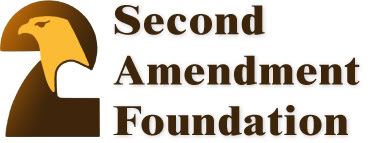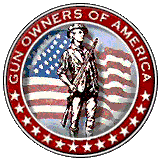Our revolution could have ended in despotism, like so many others.
BY THOMAS FLEMING
Tuesday, December 25, 2007 12:01 a.m.
There is a Christmas story at the birth of this country that very few Americans know. It involves a single act by George Washington--his refusal to take absolute power--that affirms our own deepest beliefs about self-government, and still has profound meaning in today's world. To appreciate its significance, however, we must revisit a dark period at the end of America's eight-year struggle for independence.
The story begins with Gen. Washington's arrival in Annapolis, Md., on Dec. 19, 1783. The country was finally at peace--just a few weeks earlier the last British army on American soil had sailed out of New York harbor. But the previous eight months had been a time of terrible turmoil and anguish for Gen. Washington, outwardly always so composed. His army had been discharged and sent home, unpaid, by a bankrupt Congress--without a victory parade or even a statement of thanks for their years of sacrifices and sufferings.
Instead, not a few congressmen and their allies in the press had waged a vitriolic smear campaign against the soldiers--especially the officers, because they supposedly demanded too much money for back pay and pensions. Washington had done his utmost to persuade Congress to pay them, yet failed, in this failure losing the admiration of many of the younger officers. Some sneeringly called him "The Great Illustrissimo"--a mocking reference to his world-wide fame. When he said farewell to his officers at Fraunces Tavern in New York early in December, he had wept at the sight of anger and resentment on many faces.
Congressman Alexander Hamilton, once Washington's most gifted aide, had told him in a morose letter that there was a "principle of hostility to an army" loose in the country and too many congressmen shared it. Bitterly, Hamilton added that he had "an indifferent opinion of the honesty" of the United States of America.
Soon Hamilton was spreading an even lower opinion of Congress. Its members had fled Philadelphia when a few hundred unpaid soldiers in the city's garrison surrounded the Pennsylvania State House (now Independence Hall), demanding back pay. Congressman Hamilton called the affair "weak and disgusting to the last degree" and soon resigned his seat.
The rest of the country agreed. There were hoots of derision and contempt for Congress in newspapers from Boston to Savannah. The politicians took refuge in the village of Princeton, N.J., where they rejected Washington's advice to fund a small postwar regular army, then wandered to Annapolis.
In Amsterdam, where brokers were trying to sell shares in an American loan negotiated by John Adams, sales plummeted. Even America's best friend in Europe, the Marquis de Lafayette, wondered aloud if the United States was about to collapse. A deeply discouraged Washington admitted he saw "one head turning into thirteen."
Was there anyone who could rescue the situation? Many people thought only George Washington could work this miracle.
Earlier in the year he had been urged to summarily dismiss Congress and rule as an uncrowned king, under the title of president. He emphatically refused to consider the idea. Now many people wondered if he might have changed his mind. At the very least he might appear before Congress and issue a scathing denunciation of their cowardly flight from Philadelphia and their ingratitude to his soldiers. That act would destroy whatever shreds of legitimacy the politicians had left.
At noon on Dec. 23, Washington and two aides walked from their hotel to the Annapolis State House, where Congress was sitting. Barely 20 delegates had bothered to show up.
The general and his aides took designated seats in the assembly chamber. The president of Congress, Thomas Mifflin of Pennsylvania, began the proceedings: "Sir, the United States in Congress assembled are prepared to receive your communications."
Mifflin had been one of the generals who attempted to humiliate Washington into resigning during the grim winter at Valley Forge. He had smeared Washington as a puffed-up egotist, denigrated his military ability, and used his wealth to persuade not a few congressmen to agree with him. A few months later, Mifflin was forced to quit the army after being accused of stealing millions as quartermaster general.
Addressing this scandal-tarred enemy, Washington drew a speech from his coat pocket and unfolded it with trembling hands. "Mr. President," he began in a low, strained voice. "The great events on which my resignation depended having at length taken place; I now have the honor of offering my sincere congratulations to Congress and of presenting myself before them to surrender into their hands the trust committed to me, and to claim the indulgence of retiring from the service of my country."
Washington went on to express his gratitude for the support of "my countrymen" and the "army in general." This reference to his soldiers ignited feelings so intense, he had to grip the speech with both hands to keep it steady. He continued: "I consider it an indispensable duty to close this last solemn act of my official life by commending the interests of our dearest country to the protection of Almighty God and those who have the superintendence of them \[Congress\] to his holy keeping."
For a long moment, Washington could not say another word. Tears streamed down his cheeks. The words touched a vein of religious faith in his inmost soul, born of battlefield experiences that had convinced him of the existence of a caring God who had protected him and his country again and again during the war. Without this faith he might never have been able to endure the frustrations and rage he had experienced in the previous eight months.
Washington then drew from his coat a parchment copy of his appointment as commander in chief. "Having now finished the work assigned me, I retire from the great theater of action and bidding farewell to this august body under whom I have long acted, I here offer my commission and take leave of all the employments of public life." Stepping forward, he handed the document to Mifflin.
This was--is--the most important moment in American history.
The man who could have dispersed this feckless Congress and obtained for himself and his soldiers rewards worthy of their courage was renouncing absolute power. By this visible, incontrovertible act, Washington did more to affirm America's government of the people than a thousand declarations by legislatures and treatises by philosophers.
Thomas Jefferson, author of the greatest of these declarations, witnessed this drama as a delegate from Virginia. Intuitively, he understood its historic dimension. "The moderation. . . . of a single character," he later wrote, "probably prevented this revolution from being closed, as most others have been, by a subversion of that liberty it was intended to establish."
In Europe, Washington's resignation restored America's battered prestige. It was reported with awe and amazement in newspapers from London to Vienna. The Connecticut painter John Trumbull, studying in England, wrote that it had earned the "astonishment and admiration of this part of the world."
Washington shook hands with each member of Congress and not a few of the spectators. Meanwhile, his aides were bringing their horses and baggage wagons from their hotel. They had left orders for everything to be packed and ready for an immediate departure.
The next day, after an overnight stop at a tavern, they rode at a steady pace toward Mount Vernon. Finally, as twilight shrouded the winter sky, the house came into view beside the Potomac River. Past bare trees and wintry fields the three horsemen trotted toward the white-pillared porch and the green shuttered windows, aglow with candlelight. Waiting for them at the door was Martha Washington and two grandchildren. It was Christmas eve. Ex-Gen. Washington--and the United States of America--had survived the perils of both war and peace.
Mr. Fleming is the author, most recently, of "The Perils of Peace: America's Struggle for Survival After Yorktown" (Collins, 2007).
Sunday, December 23, 2012
Subscribe to:
Post Comments (Atom)






















No comments:
Post a Comment